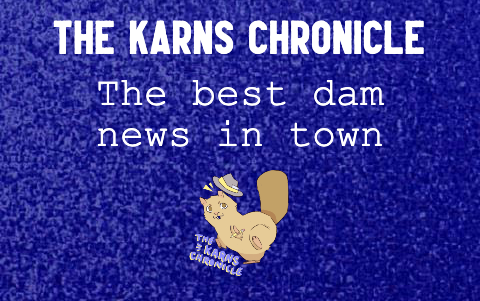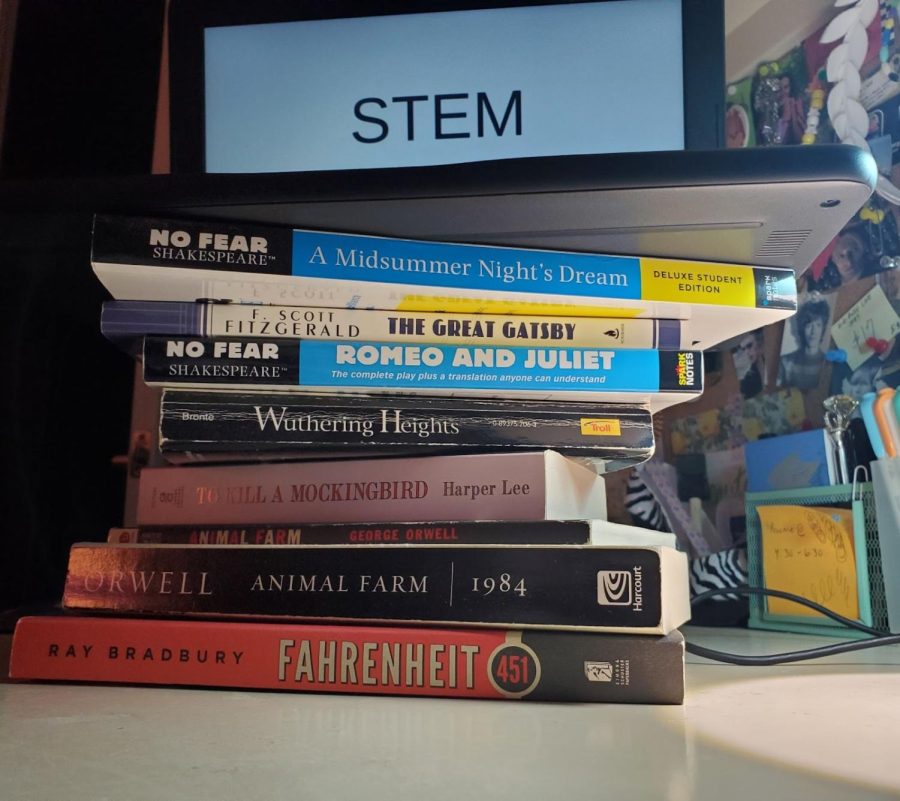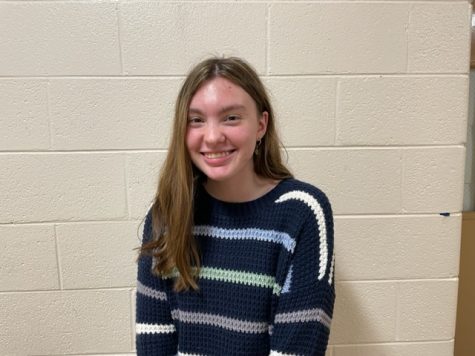Do robots write about their electric feelings?
November 18, 2022
Editor’s Note: Thoughts expressed in Karns Chronicle opinion columns do not necessarily represent the opinions or beliefs of Karns High School or Knox County Schools.
When I was in fifth grade, I wrote a book of poetry for a year-long-project. It was one of those things that you would draft and draft and draft; asking your teacher to print off countless copies of your haphazardly cobbled together paragraphs. When you finally got your act together, you would print it on these glossy, shiny sheets of paper, slide it in a fancy envelope, and off it would go to the publisher. You would get this nice, hardcover book back at the end of the year, and you would give it to your parents so they could “ooh” and “ahh” over all your hard work and read your blurb about yourself in the back. It was about the most fun thing I did in elementary school, class Christmas parties aside.
We weren’t technically supposed to have written poetry. It was supposed to be a “serious research project.” My teacher had written up a list of animals and historical events on the board, and we were each supposed to pick one and do our book on it. I didn’t want to write about monkeys or otters or skunks or the Louisiana Purchase, I wanted to make something of my own. So I asked to write a book about poetry. My teacher understood me-she was a kindred spirit- and let me write a book of poetry, alongside another “proper” book.
It was one of the first times that I was allowed to let my true self into an educational space. I devoted all of my time to writing, editing, and rewriting as many poems as I could before the deadline, making up little Seuss-esque stories and exploring facets of myself that I had never explored before. I was so in my element that I forgot that it was school, that it was work, and I was doing something for myself, by myself. It was my first glimpse into the world of writing, the world that I have come to love today. I walked into middle school and high school thinking that maybe if I did want to pursue writing as a career, I would have someone to talk to, places that I could go to seek writing help, maybe even mentorship.
When I entered high school, it was made clear to me where everyone’s sentiments lied. I chose to take a creative writing class my freshman year, and realized very quickly that it was for seniors who had dual enrollment, people who wanted an easy class that they could pass with no problem. I suppose that I was a bit naive, a bit pretentious, to think that creative writing would be taken as seriously as I took it, especially in a high school. That first year is discouraging, anyway. Things could change, right?
My following years of high school have proved to me one thing: very few people value the arts.
I’ve had some very wonderful teachers that have supported me in my journey as a writer and encouraged me to seek a career in creative writing. They have provided me with a great resource for help and a wealth of knowledge, but that’s because I was persistent. I asked, and participated, and showed my interest, and the rest followed. Asking, questioning your teacher wasn’t required, it wasn’t in the curriculum. I didn’t even hear about the National English Honors Society until I asked the sponsor about it. I had heard all about the TSA, the band, and countless other sports, but never once did I hear about a writing club or the National English Honors Society.
Your gut instinct will be to deny- none of this can be true, can it? I mean, they still teach English, don’t they? You learn to write essays and poems, and sometimes you even get the opportunity to write short stories. They funnel beaucoups of money into bands and choirs and orchestras, and what’s more, taking art is a graduation requirement. If anything, the school encourages the arts!
I like you; you’re skeptical. You don’t do as you’re told. You probably learned to start questioning the news from coming across thousands of click-baited articles with misleading headlines. If you didn’t learn it there, you’ve come to distrust any sort of media, whether it be print or visual news, because you’re involved in politics in some form or fashion. You are right to question the source of your information.
What if I told you that teenagers are being taught how to recognize bias in the media in their senior English classes? What if I told you that they are being taught how to be skeptical themselves? In a science or a math classroom, they can learn how to build buildings, engineer machines, conduct scientific experiments, but in an English classroom, they learn how to question those results, how to look inside themselves and ask: is what I’m doing right? Am I in the wrong?
What if I told you that teenagers are learning how to express their grievances and disenchantments with life through making art, through writing stories? What if I told you that alongside manipulating the physical world through chemical and mechanical alteration, your teenagers can learn to manipulate words, to make world-changing speeches, poetry, books, make fists rise in protest and feet hit the ground with the sonorous clap of forward thinking?
Stem cannot stand on its own. The arts cannot stand on their own. They must find a way to come together, to mesh into one another and create a harmonious song. We can make robots that feel, we can write poetry about the discovery of new stars and planets, we can fight wars through paintings and haikus. When robot children write books of poetry in elementary school about their purposeful yet disposable existences, we will know that we’ve finally done something right.




